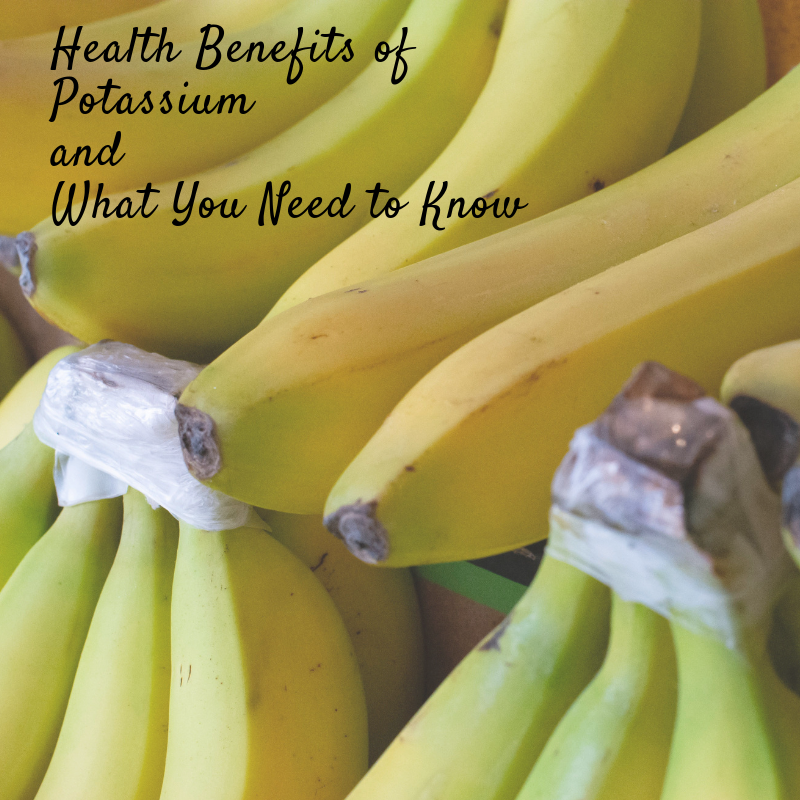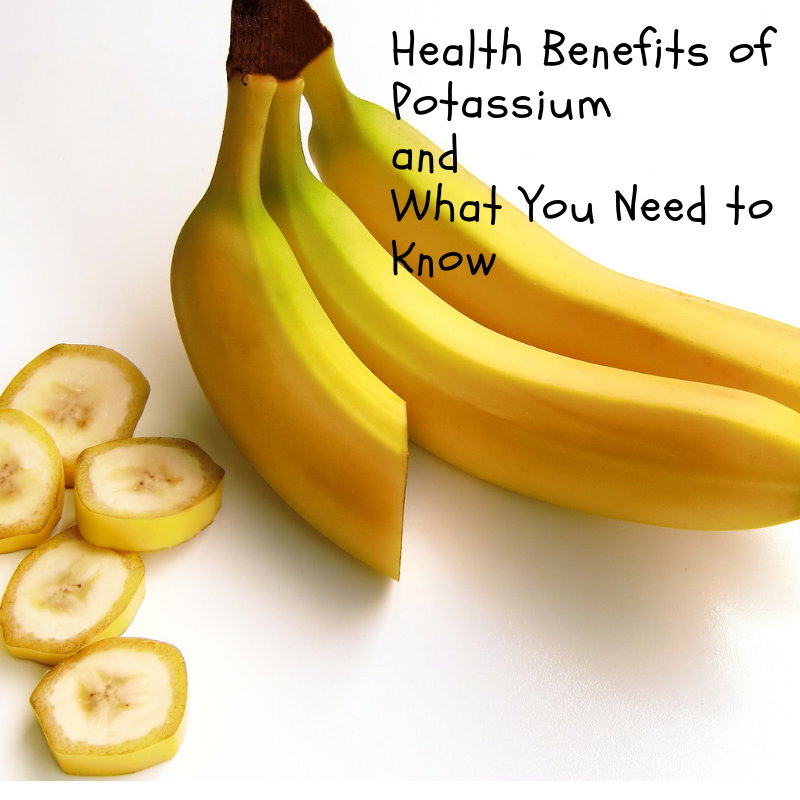
Health Benefits of Potassium – What You Need to Know
Lately I have been reading a lot about the health benefits of potassium. Potassium plays an incredibly important role in our bodies, with its primary function being fluid balance regulation and the control of electrical activity in the heart and other muscles of the body.
A high intake of potassium has been shown to reduce the overall mortality rate of a person by 20% so it’s worth making sure that you have plenty of this mineral in your diet or supplement regimen. Here’s why potassium helps you maintain good health and how it helps you live a healthier life.
Table of Contents
Health Benefits of Potassium
Before we get into everything potassium does, let’s stop and take a look at some potassium facts. It’s recommended that adults take in around 4,700 mg of potassium daily, however, less than 2% of people actually consume that recommended amount. That is a staggering number when you consider that potassium helps support healthy blood pressure, cardiovascular health, and bone and muscle strength.
Blood Pressure and Cardiovascular Health
We all know reducing salt is important in maintaining cardiovascular health and healthy blood pressure, but that’s only part of it. Low potassium levels have been linked with high blood pressure and cardiovascular disease, so it’s important to up your potassium intake while cutting your sodium intake. In fact, a study showed that people who took in 4,069 mg of potassium every day cut their risk of death from ischemic heart disease by 49% versus people who only took in about 1,000 mg per day.
And, many recent studies have noted that stroke risk is lowered dramatically. In fact a 1640 mg increase of potassium per day resulted in a 21 % decreased stroke risk.
Bone and Muscle Health
Diets high in potassium help maintain an alkaline environment in the body and reduce the likelihood of metabolic acidosis. This is a condition in which the acidity of the body is too high and is commonly triggered by the common western diet. That’s a diet that is heavy on foods like meat, dairy products, and processed cereal grains. It causes nitrogen excretion, reduction in bone density, and muscle wasting.
High potassium intake helps keep the body’s acid/base balance well-regulated and works to prevent loss of muscle and bone. In one study, participants who consumed 5,266 mg of potassium daily maintained an average of 3.6 more pounds of lean muscle mass than their counterparts who took in 50% less potassium.
Good Sources of Potassium
The health benefits of potassium are very important so it’s important to know what foods can help you increase your intake. Good sources of potassium include:
- Beet greens
- White beans
- Soybeans
- Lima beans
- Sweet potato
- Avocado
- Mushrooms
- Bananas
- Ripe tomatoes
- Cantaloupe
- Potato
Potassium Deficiency
The western diet is traditionally low in potassium-rich foods. This type of diet can lead to a variety of health issues. As potassium levels in the blood fall, the symptoms become more severe. Symptoms of potassium deficiency include:
Low Potassium
- Fatigue
- Weakness
- Whole-body muscle pain
- Constipation
Extremely Low Potassium
- Severe muscle weakness
- Respiratory distress
- Gut obstruction
- Numbness or tingling, crawling, or itchy sensations in the hands, feet, legs, or arms
- Intermittent muscle spasms
People with Crohn’s and colitis (Inflammatory Bowel Disease, which I have) often lose potassium. This has to be considered and monitored.
Excessive Potassium Intake Risks
The health benefits of potassium are wonderful, but just as with anything, you can have too much of a good thing. It’s important to have your doctor test your potassium level before increasing your potassium intake through food, or most especially, supplements.
People with kidney problems should be careful not to consume too much potassium, as the kidneys filter out excess potassium. This can put an undue strain on an already weakened kidney. It can also lead to excess potassium in the body because the kidneys cannot adequately filter out excess potassium in the bloodstream.
One of the largest risks of potassium intake is hyperkalemia, which is simply an excess amount of potassium in the body. Hyperkalemia can cause:
- Muscle fatigue
- Weakness
- Paralysis
- Arrhythmias
- Nausea
As you can see some of the symptoms of an excessive potassium level are the same as symptoms of low potassium levels. That’s why it’s imperative to have your potassium levels tested by a doctor before changing anything about your diet or supplementation.
Be Smart About Taking Advantage of the Health Benefits of Potassium
As we’ve covered, potassium is incredibly important to good health, but like anything else, you need to be smart about how you approch increasing your potassium intake. Always consult a doctor before you change your diet or activity level, especially if you have any kind of chronic medical condition. While increased potassium intake can be great for overall health, some people may not be able to consume as much potassium due to kidney or other health issues. Talk with your doctor about the health benefits of potassium and if increasing your potassium intake would be beneficial to you.







One Comment
wendy hutton
I love bananas but with having weak kidneys my Dr advises to limit them, this is great info you have, great read thanks